News & Media
Storytelling as part of a participatory design project
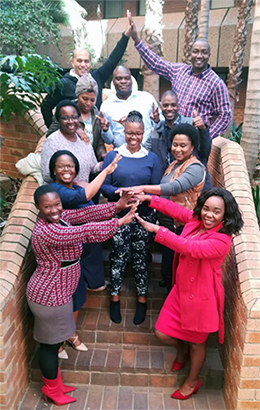 On 26 July 2018, administrators and researchers in Unisa’s School of Computing collaborated on a research project that draws on the storytelling tradition of many African cultures and combines that with digital visualisation towards representing administrative processes for improving knowledge communication.
On 26 July 2018, administrators and researchers in Unisa’s School of Computing collaborated on a research project that draws on the storytelling tradition of many African cultures and combines that with digital visualisation towards representing administrative processes for improving knowledge communication.
Traditional storytelling in Africa is used to present ideas, themes, beliefs, and facts. It discloses conceptions that are unique to a tribe, village, or region. Storytelling in Africa was used to interpret the universe, resolve natural and physical phenomena, teach morals, maintain cultural values, pass on methods of survival, and also as part of religious practice.
Storytelling in Africa provides entertainment, satisfies the curiosities of the African people, and teaches important lessons about everyday life. It is essentially a communal participatory experience. This research aims to employ storytelling as part of a participatory design project where the administrative process owners skilfully presented their ‘stories’ in a narrative of their choice. Storytelling empowers the story teller as the expert and focuses on the actors rather than the processes.
Visualising the process
Having captured the stories on video, this articulation was used to derive a representation of the process in the form of a knowledge visualisation on paper. This first version of the visualisation is then discussed with the process owners (narrators) for clarification and digitised in an appropriate format. This is a critical phase since the elicitation and representation of the tacit knowledge involved needs to match the requirements of the target audience in terms of content and format. The audience could be students, lecturers, administrators or the general public.
The next step involves iterative involvement of the process owners and other stakeholders to confirm the veracity of the representation and arrive at an accurate and valuable knowledge visualisation representing the organizational process.
Encouraging participation
Visualisation has known benefits for knowledge creation and transfer but the application is hampered by a lack of standards and guidelines on best practice and pitfalls in creating the visualisations. Besides the research contribution which aims at developing a methodology for the use of African storytelling as participatory design component in organisational processes and the benchmarking and refining of knowledge visualisation guidelines, the project created awareness of the complexity of administrative processes, administrators’ challenges, and encouraged participation on improving practices.
The project is led by Prof Judy van Biljon, the research team includes Dr Bester Chimbo, Sewisha Lehong, and Donald Mothisi. Regina Ramoshebi is the Administrative Manager in the School of Computing and her innovative team of process owners, Lesego Jiyana, Daphney Mokwana, Nthabiseng Ntando, Busi Silangwe, Eshwar Soriakumar, Mokgadi Tshabalala, and Charlotte Hlengwa, are participants in the project.
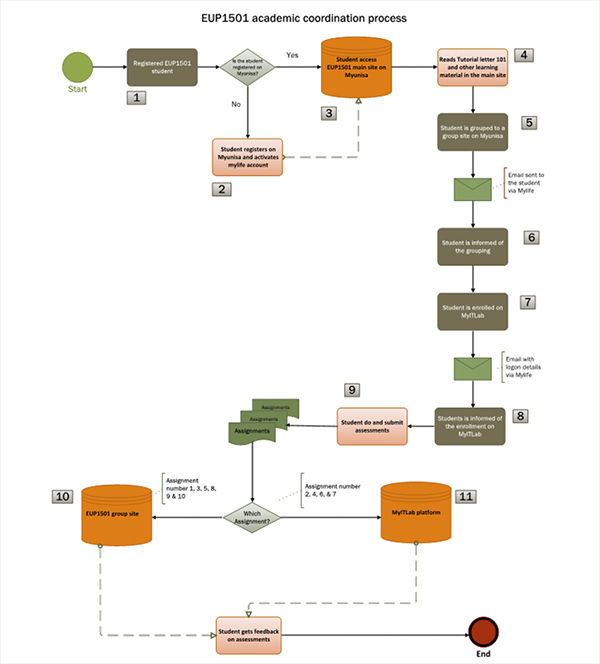
An unverified, first version of the digitised processes
*Submitted by Cecile Koopman
Publish date: 2018-08-13 00:00:00.0

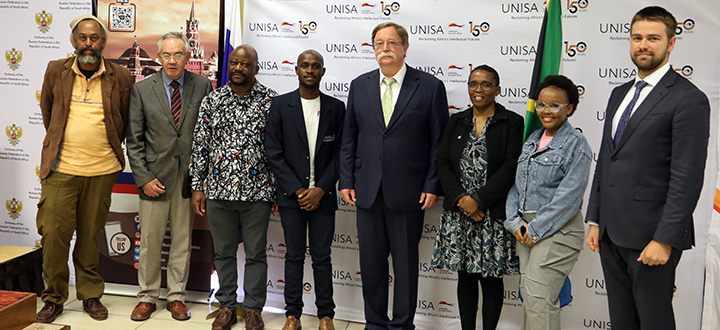 Unisa's student leadership engage with Russian ambassador
Unisa's student leadership engage with Russian ambassador
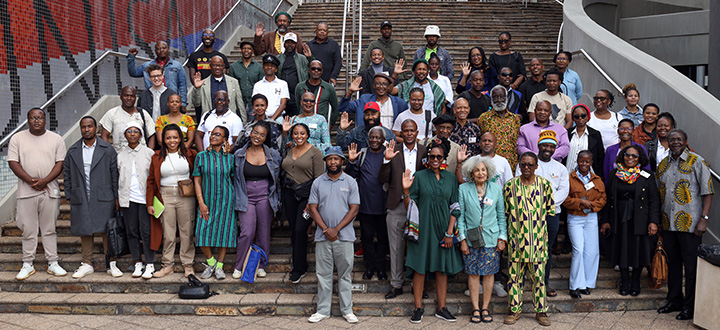 Re-igniting and re-imagining Pan Africanism, Afrocentricity and Afrofuturism in the 21st century
Re-igniting and re-imagining Pan Africanism, Afrocentricity and Afrofuturism in the 21st century
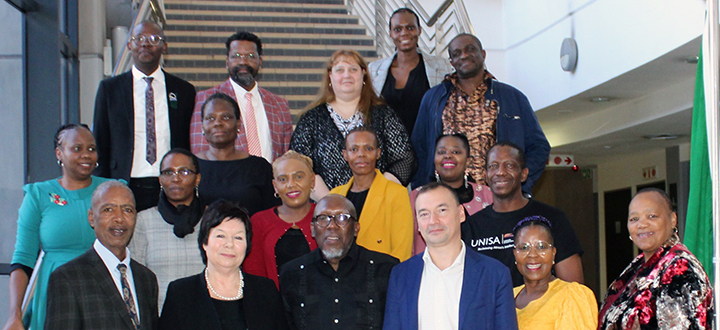 Unisa and Russian State University for the Humanities explore collaborative opportunities
Unisa and Russian State University for the Humanities explore collaborative opportunities
 Young Unisa science stars join elite Lindau Nobel Laureate group
Young Unisa science stars join elite Lindau Nobel Laureate group
 Education MEC addresses Unisa autism seminar
Education MEC addresses Unisa autism seminar